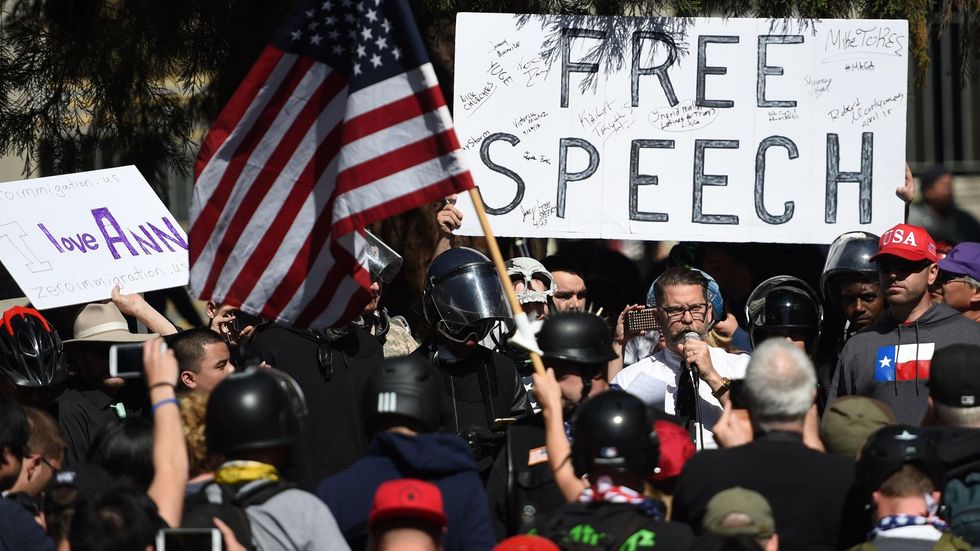As most of us are aware of (and even more so if you go to Berkeley), the issue of free speech has been a major issue on college campuses. Last year, Cal became one of the battlegrounds for free speech when controversial speakers and provocateurs like Milo Yiannopoulis came to campus and was then shut down as a result of protests outside the event that got out of hand. Anarchists broke the windows of buildings and many were present to protest the speaker. The argument was written across several posters: Hate Speech is Not Free Speech.
The issue doesn’t stop there and was discussed heavily across the country. Even in D.C., there were several committee hearings and events to discuss the topic of free speech on college campuses and whether there needs to be legislation targeting how colleges should handle this issue. The U.S. House Committee on Oversight and Government Reform
Subcommittee on Intergovernmental Affairs and Subcommittee on Health Care, Benefits, and Administrative Rules discussed this issue in July with the hearing “Challenges to Freedom of Speech on College Campuses” featuring several panelists close to the issue like Ben Shapiro (a controversial speaker who also has been invited to Berkeley to speak this year).
Subcommittee Chairman Jordan discussed the purpose of the hearing to highlight the importance of the First Amendment, free speech rights on college campuses, and the role of college campuses as a place for students to express their ideas freely and be exposed to a plethora of new and challenging ideas. Jordan stated limiting speech on college campuses that goes against popular opinion is against the First Amendment. There have been instances of riots, violence, and scare tactics used by populations of students to shut down potentially controversial speakers invited to speak by college campus student organizations out of safety concerns as well as other demonstrations of students berating faculty and other students who offer ideas against popular opinion. The basic opinion of the hearing was the silencing of opposing ideas is detrimental to an educational environment for students and Jordan stated the committee is dedicated to preserving the freedom of speech on college campuses.
As the academic year begins, campuses will no doubt continue the discussion and debate on free speech. The NASPA foundation, according to Politico, representing student affairs administrators is predicting another “dynamic year for free speech on campus,” with more legislation to follow. The article says the conclusion is based on recent events in Charlottesville that turned violent in addition to the findings of a recent Gallup poll that the majority of Republicans believe campuses are too liberal. What we as students should know is that this year, legislation was proposed in 17 states with the intent of reaffirming the First Amendment guarantee of freedom of speech on college campuses. The legislation passed in seven, failed in three and is still under consideration in at least seven.
















